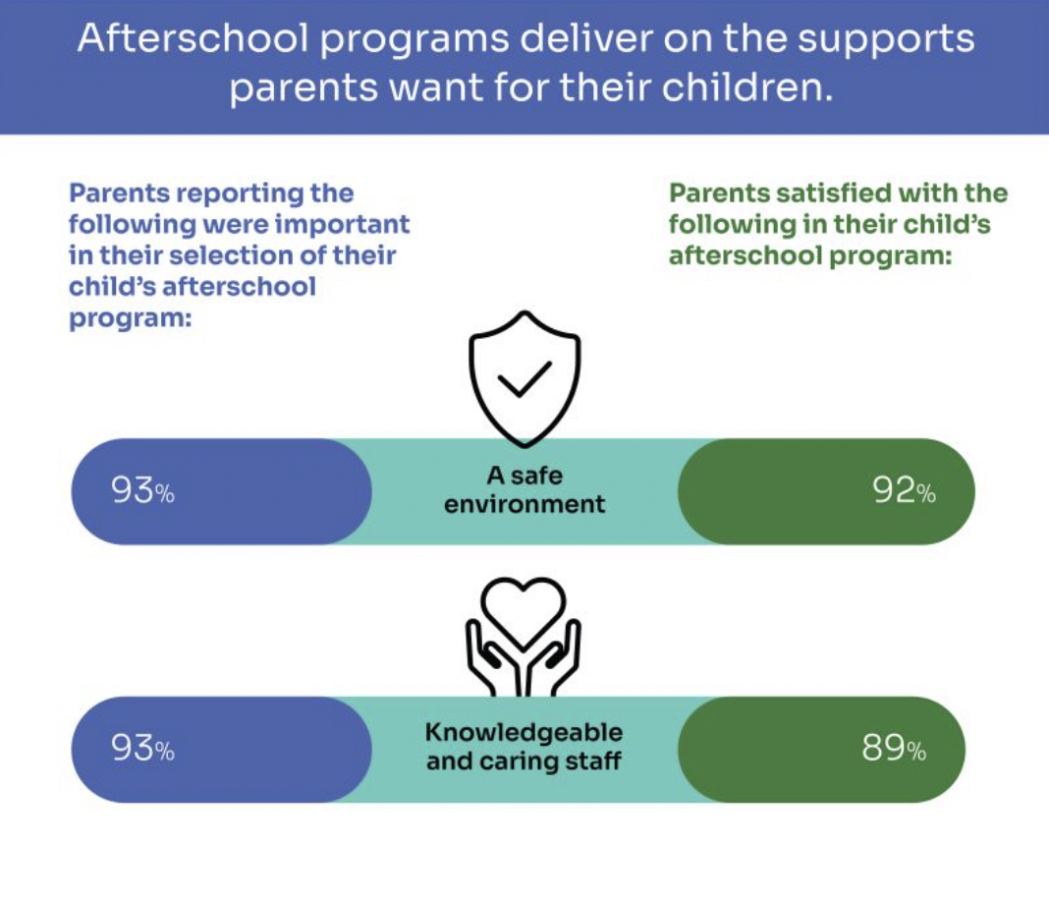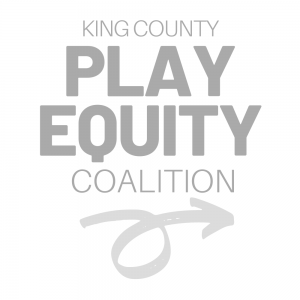Most Washington state parents see afterschool programs as part of the solution to the social and mental health struggles so many students are experiencing right now, with 5 in 6 saying these programs give students time to engage with peers and reduce unproductive screen time, and 8 in 10 saying they help build confidence. That is according to Promoting Healthy Futures: Afterschool Provides the Supports Parents Want for Children’s Well-Being, a household survey released today by the Afterschool Alliance.
Afterschool programs are especially important now, as the country faces a youth mental health crisis. In December, the U.S. Surgeon General issued a sobering warning about the mental health of America’s youth, warning that rates of anxiety, depression, and sadness rose dramatically during the pandemic. The Centers for Disease Control and Prevention (CDC) just reported that 4 in 10 high school students report feeling “persistently sad or hopeless” and 1 in 5 have contemplated suicide. The CDC noted that “school connectedness” is a protective factor for youth facing mental health challenges.
The household survey the Afterschool Alliance released today includes responses from more than 31,000 U.S. parents of school-age children, including 778 in Washington. It was conducted by Edge Research in 2020. It shows that parents see afterschool and summer learning programs as a pivotal support young people need. Eighty-two percent of Washington state parents of afterschool students report the program helps their child learn responsible decision-making and 82% report it helps their child build positive relationships with caring adults and mentors.
“Here in Washington, afterschool and expanded learning programs have been stepping up to meet the challenges students and families are facing by checking in with students during remote learning, taking students on virtual and in-person field trips, providing counseling, mentoring, providing meals, and more,” said David Beard, Policy and Advocacy Director of School’s Out Washington.
“We are pleased that this study finds that large majorities of Washington parents recognize the tremendous supports that out-of-school-time programs provide. But we need to do even more to ensure that all students in Washington have access to these programs. Right now, the unmet demand is great.”

“Afterschool and summer learning programs offer critically important opportunities for students to engage with their peers, learn life skills, and build positive relationships with caring adults and mentors,” said Afterschool Alliance Executive Director Jodi Grant. “But too many young people are missing out. For every child in an afterschool program in our country today, three more are waiting to get in. The families of 24.6 million children — more than ever before — are unable to access a program. There are significant inequities, with Black and Latino children among those most likely to be unable to access the afterschool programs their parents want for them. We need to make it possible for all students to participate in afterschool programs, which help them build the resilience, hope, and connectedness they need to succeed.”
The Washington state findings from Promoting Healthy Futures largely mirror the national findings, which include:
- Eighty-five percent of parents say afterschool programs provide children opportunities to engage with their peers, 77% say they allow children to build positive relationships with caring adults and mentors, 75% say they reduce the likelihood that young people will use drugs or engage in other risky behaviors, and 74% say they keep kids safe and out of trouble. All those numbers are appreciably higher than they were in the 2014 survey.
- Agreement on the benefits afterschool programs provide crosses all demographic and political lines, with more than 8 in 10 urban, suburban, and rural parents agreeing that these programs give working parents peace of mind. Agreement spans every region, and 86% of Democrats, 83% of Republicans, and 82% of Independents agree with that statement.
- More than 3 in 4 parents in all 50 states and the District of Columbia say that afterschool programs provide students with time to interact with peers and build life skills, like the ability to communicate and work in teams; and approximately 7 in 10 in every state and D.C. say these programs help build confidence and help children learn responsible decision-making.
- A safe environment, knowledgeable and caring staff, and the opportunity to build life skills are most important to parents selecting an afterschool program. Ninety-three percent say a safe environment was important in choosing their child’s program and 92% are satisfied with the environment the program provides. Similarly, 93% say staff was important in choosing a program and 89% are happy with the program’s staff. Eighty-eight percent of parents say the opportunity to build life skills was important in choosing a program and 90% say the program helps their child build life skills.
- Parents of color and those with low incomes place a higher priority on programs helping students build life skills, with 67% of Black parents, 64% of Latino parents, and 63% of parents in families with low incomes saying that was extremely important in their selection of a program, compared to 58% of parents overall. Black, Latino, and low-income parents also are more likely to say knowledgeable and caring staff, and a focus on reducing risky behaviors, was extremely important in their choice of an afterschool program.
The full national and Washington study, America After 3PM, and accompanying data, are available at www.afterschoolalliance.org.
Data from this special report is based on the 2020 America After 3PM survey results, which was made possible with support from the New York Life Foundation, Overdeck Family Foundation, The Wallace Foundation, the S.D. Bechtel, Jr. Foundation, Altria Group, and the Walton Family Foundation, as well as the Charles Stewart Mott Foundation.
America After 3PM is a nationally representative survey of randomly selected adults who live in the United States and are the parent or guardian of a school-age child who lives in their household. The survey was conducted using a blend of national consumer panels. America After 3PM data included in this report were collected between January 27 and March 17, 2020. A total of 31,055 households were surveyed. Interviews were conducted in both English and Spanish. Data from interviews are weighted on race and income within state and by state population. The overall margin of error for child-level and household-level data is +/- < 1 percent.




